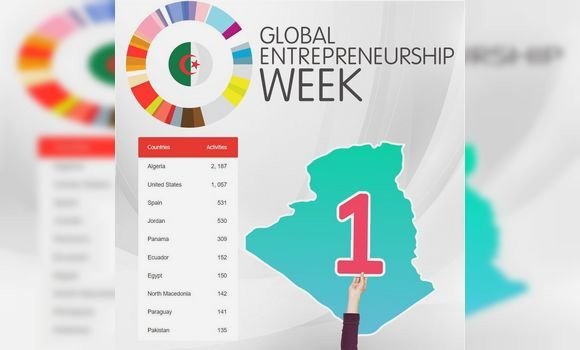By Riad Beladi, https://internationalsupermarketnews.com/algeria-adapt-the-best-startup-policy-in-the-world/reports/
According to the ranking of the GEN, Algeria has hosted the largest number of events compared to other countries in 2022, including during the Global Entrepreneurship Week held last November, with 2,187 activities.
In a statement issued Wednesday, the Ministry of Knowledge Economy, Start-ups and Microenterprises said that this ranking “is the result of the entrepreneurial momentum and innovation that Algeria knows,” recalling the training sessions conducted by the public start-up gas pedal “Algeria Venture” during the past weeks in the various universities of the country, having involved 110,000 students. The latter have organized, in turn, sessions and regional training programs on the concepts of entrepreneurship and the release of creative energy.
Through these initiatives, the Ministry of Knowledge Economy tends to “anchor the spirit of initiative, to encourage young scientific elites and also to promote mechanisms and incentives for the benefit of carriers of innovative projects and promoters of startups in different areas,” concludes the statement.
African countries have enormous economic potential with rewarding opportunities for investors. Therefore, despite so many obstacles, a number of African countries have been able to develop their economies, which has been mainly made possible by advances in underlying infrastructure that have accelerated the convergence of underdeveloped regions with national levels. Real gross domestic product (real GDP) is a macroeconomic measure of the value of economic output adjusted for price changes
This adjustment transforms the measure of monetary value, nominal GDP, into an index of the quantity of total output. Although GDP is total output, it is most useful because it closely approximates total spending: the sum of consumer spending, investment by industry, the excess of exports over imports, and government spending. Because of inflation, GDP increases and does not really reflect the true growth of an economy. Therefore, GDP must be divided by the rate of inflation (raised to the power of the time units in which the rate is measured) to obtain real GDP growth.





